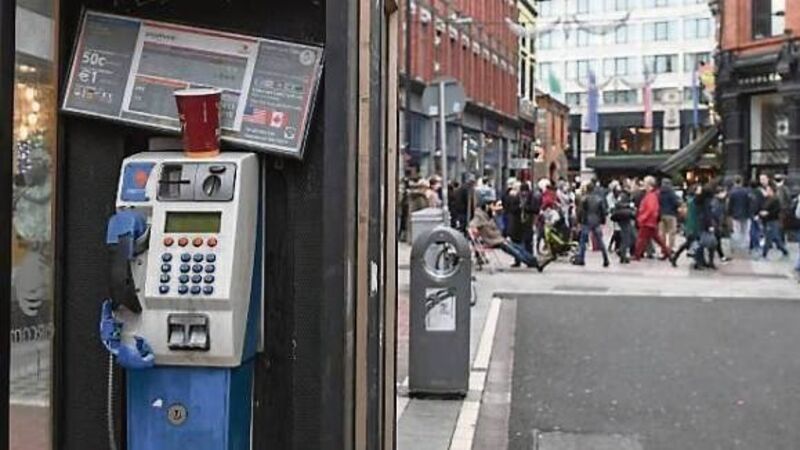Call on Eir to retain public payphones as ‘safety net’

The telecoms regulator is supporting the retention of public payphones as the country’s largest telecom firm has signalled that it wants to remove all existing units on a gradual basis.
ComReg claims there is a “societal case” for keeping in place a universal service obligation to provide public payphones “in the medium term”. The current universal service obligation on Eir to provide public payphones is due to end on October 15.













